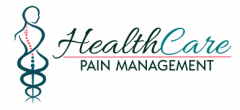Myositis and Myalgia
Myositis
Myositis means inflammation of the muscles that you use to move your body. An injury, infection, or autoimmune disease can cause it. Two specific kinds are polymyositis and dermatomyositis. Polymyositis causes muscle weakness, usually in the muscles closest to the trunk of your body. Dermatomyositis causes muscle weakness, plus a skin rash.
Other symptoms of myositis may include
- Fatigue after walking or standing
- Tripping or falling
- Trouble swallowing or breathing
Doctors may use a physical exam, lab tests, imaging tests and a muscle biopsy to diagnose myositis. There is no cure for these diseases, but you can treat the symptoms. Polymyositis and dermatomyositis are first treated with high doses of a corticosteroid. Other options include medications, physical therapy, exercise, heat therapy, assistive devices, and rest.
Muscle aches (Myalgia)
Muscle aches and pains are common and can involve more than one muscle. Muscle pain also can involve ligaments, tendons, and fascia, the soft tissues that connect muscles, bones, and organs.
Considerations
Muscle pain is most frequently related to tension, overuse, or muscle injury from exercise or physically-demanding work. In these situations, the pain tends to involve specific muscles and starts during or just after the activity. It is usually obvious which activity is causing the pain.
Muscle pain also can be a sign of conditions affecting your whole body, like some infections (including the flu) and disorders that affect connective tissues throughout the body (such as lupus).
One common cause of muscle aches and pain is fibromyalgia, a condition that includes tenderness in your muscles and surrounding soft tissue, sleep difficulties, fatigue, and headaches.
Causes
The most common causes are:
- Injury or trauma including sprains and strains
- Overuse: using a muscle too much, too soon, too often
- Tension or stress
Muscle pain may also be due to:
- Certain drugs, including ACE inhibitors for lowering blood pressure, cocaine, and statins for lowering cholesterol
- Dermatomyositis
- Electrolyte imbalances like too little potassium or calcium
- Fibromyalgia
- Infections, including influenza (the flu), Lyme disease, malaria, muscle abscess, polio, Rocky Mountain spotted fever, trichinosis (roundworm)
- Lupus
- Polymyalgia rheumatica
- Polymyositis
- Rhabdomyolysis
Home Care
For muscle pain from overuse or injury, rest that body part and take acetaminophen or ibuprofen. Apply ice for the first 24 – 72 hours of an injury to reduce pain and inflammation. After that, heat often feels more soothing.
Muscle aches from overuse and fibromyalgia often respond well to massage. Gentle stretching exercises after a long rest period are also helpful.
Regular exercise can help restore proper muscle tone. Walking, cycling, and swimming are good aerobic activities to try. A physical therapist can teach you stretching, toning, and aerobic exercises to feel better and stay pain-free. Begin slowly and increase workouts gradually. Avoid high-impact aerobic activities and weight lifting when injured or while in pain.
Be sure to get plenty of sleep and try to reduce stress. Yoga and meditation are excellent ways to help you sleep and relax.
If home measures aren't working, your health care provider may prescribe medication or physical therapy, or refer you to a specialized pain clinic.
If your muscle aches are due to a specific disease, follow the instructions of your health care provider to treat the primary illness.
When to Contact a Medical Professional
Call your health care provider if:
- Your muscle pain persists beyond 3 days
- You have severe, unexplained pain
- You have any sign of infection, like swelling or redness around the tender muscle
- You have poor circulation in the area where you have muscles aches (for example, in your legs)
- You have a tick bite or a rash
- Your muscle pain has been associated with starting or changing doses of a medicine, such as a statin
Call 911 if:
- You have sudden weight gain, water retention, or you are urinating less than usual
- You are short of breath or have difficulty swallowing
- You have muscle weakness or cannot move any part of your body
- You have vomiting, a very stiff neck, or high fever
What to Expect at Your Office Visit
Your health care provider will perform a physical examination and ask questions about your muscle pain, such as:
- When did it start? How long did it last?
- Where is it exactly? Is it all over or only in a specific area?
- Is it always in the same location?
- What makes it better or worse?
- Do other symptoms occur at the same time, like joint pain, fever, vomiting, weakness, malaise, or difficulty using the affected muscle?
- Is there a pattern to the muscle aches?
- Have you taken any new medications lately?
Tests that may be done include:
- Complete blood count (CBC)
- Other blood tests to look at muscle enzymes (creatine kinase) and possibly a test for Lyme disease or a connective tissue disorder
Physical therapy may be helpful.
Prevention
- Warm up before exercising and cool down afterward.
- Stretch before and after exercising.
- Drink lots of fluids before, during, and after exercise.
- If you work in the same position most of the day (like sitting at a computer), stretch at least every hour.
